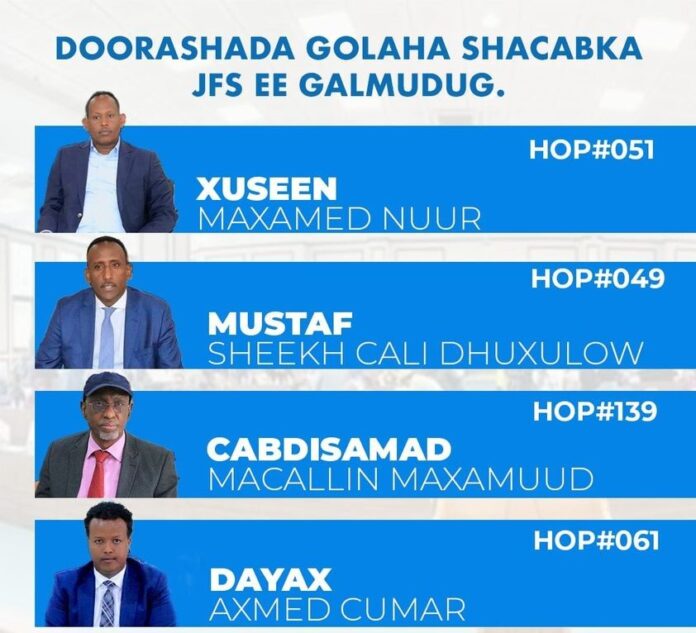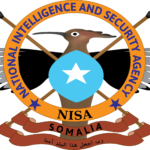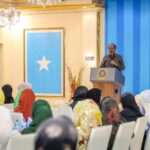Organizers of Somalia’s much-delayed elections say the polls have picked up the “right pace”, assuring citizens that they will meet the February 25 deadline to conclude voting.
Ahmed Safina, the Spokesperson of the Federal Electoral Implementation Team (FEIT), the top-most committee assigned to manage the elections in Somalia, said the polls team will, by Thursday, complete the election of the first 100 of 275 legislators in the Lower House.
“FEIT is going to complete the election of 100 legislators to the House of People on Thursday,” Safina announced.
Vote
He spoke in Mogadishu after four MPs were elected by delegates representing Somaliland in the Somali capital.
“We (all Somali election stakeholders) are pleased that delegates and teams representing the Northern regions (also referred as Somaliland) are the most dynamic of the constituencies,” he said.
Somalia’s five Federal Member States (FMS)—Puntland, Galmudug, Hirshabelle, South West and Jubbaland—as well as the capital Mogadishu, have been instructed to complete the election of legislators in the Lower House by February 25.
The instructions were issued by the National Consultative Council (NCC), chaired by the Prime Minister Hussein Roble, through a communiqué issued on January 9.
Mr Safina said he foresees that the election will be completed before end of February as projected.
“We can assure the Somali public that the remaining 175 MPs will be elected by the set election completion date,” Safina said.
Until this week, Hirshabelle was the only state that had not elected a single MP in the Lower House. It, however, elected its first six MPs on Monday in its capital Jowhar Town.
“I hereby congratulate Hirshabelle teams and its authority for holding elections, joining the rest,” Safina said.
Ms Khadija Dirie, the outspoken Federal Minister of Humanitarian Affairs and Disaster Management, was re-elected.
Indirect electoral system
The indirect electoral system provides such terms that each of the 275 Lower House MP is elected by 101 delegates chosen and confirmed by clan leaders that are entitled to send representatives to the lower chamber of the country’s bicameral Parliament.
The NCC chose the indirect electoral system after preparations to hold a one-person, one-vote universal suffrage failed and required more time.
The Council stipulated that each state should hold the elections in two constituencies so that the five FMS will have two towns each to hold the elections.
The South West State appears to be the leading state in choosing MPs.
This week, it concluded the election of the MPs allocated to Baidoa town, the interim capital of the state.
On January 29, the State Electoral Implementation Team (SEIT) of South West had announced that preparation to hold the election of 13 seats in the coastal town of Barawe town, the state’s official capital, 200km south of Mogadishu, had started.
FEIT Spokesman Safina praised the South West for being the first to start holding elections in the second electoral constituency—Barawe town—after elections were concluded in Baidoa.





